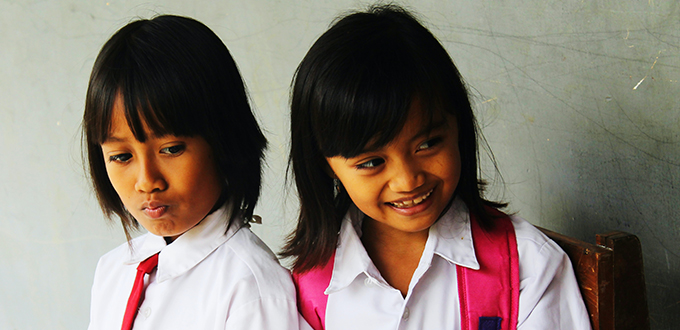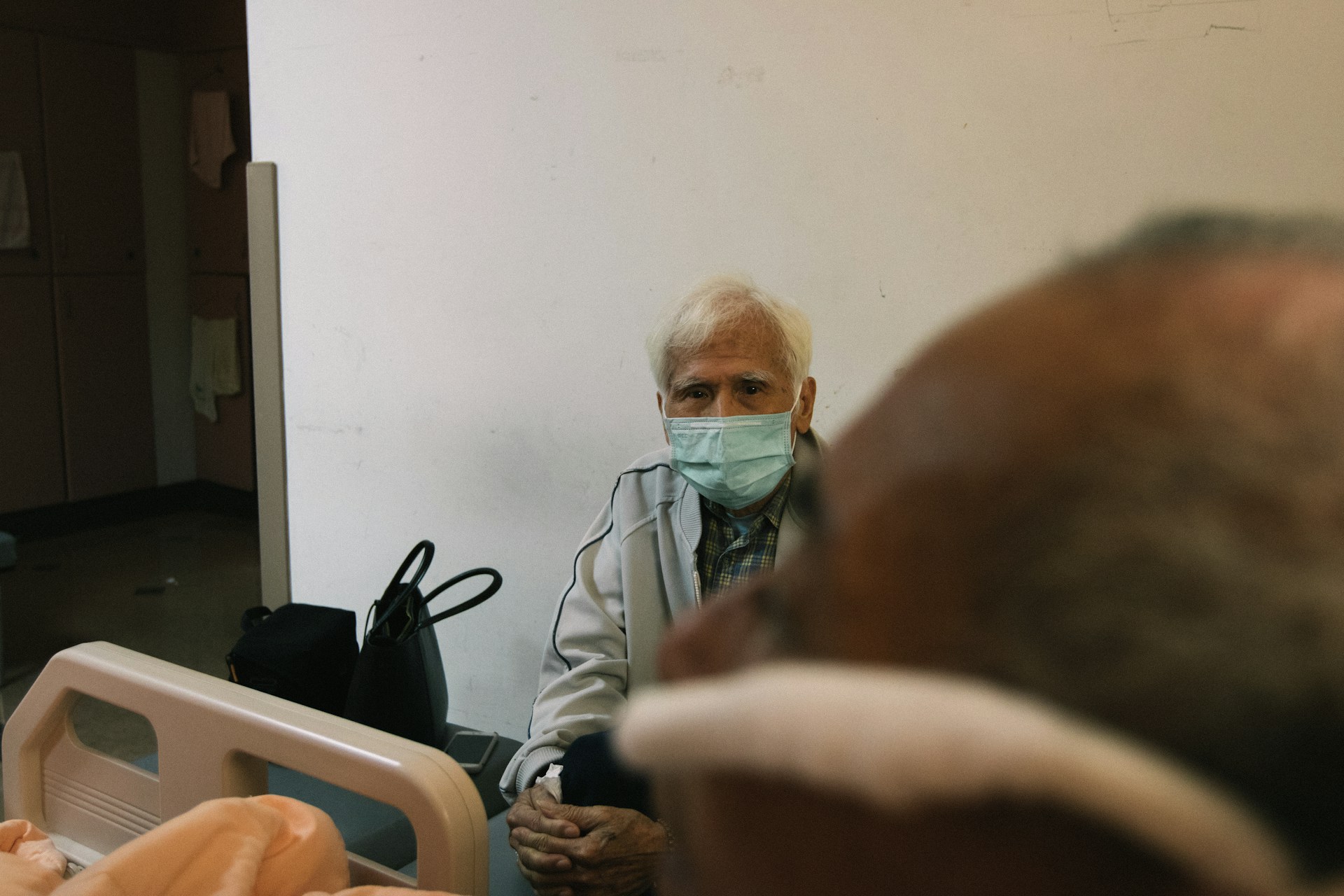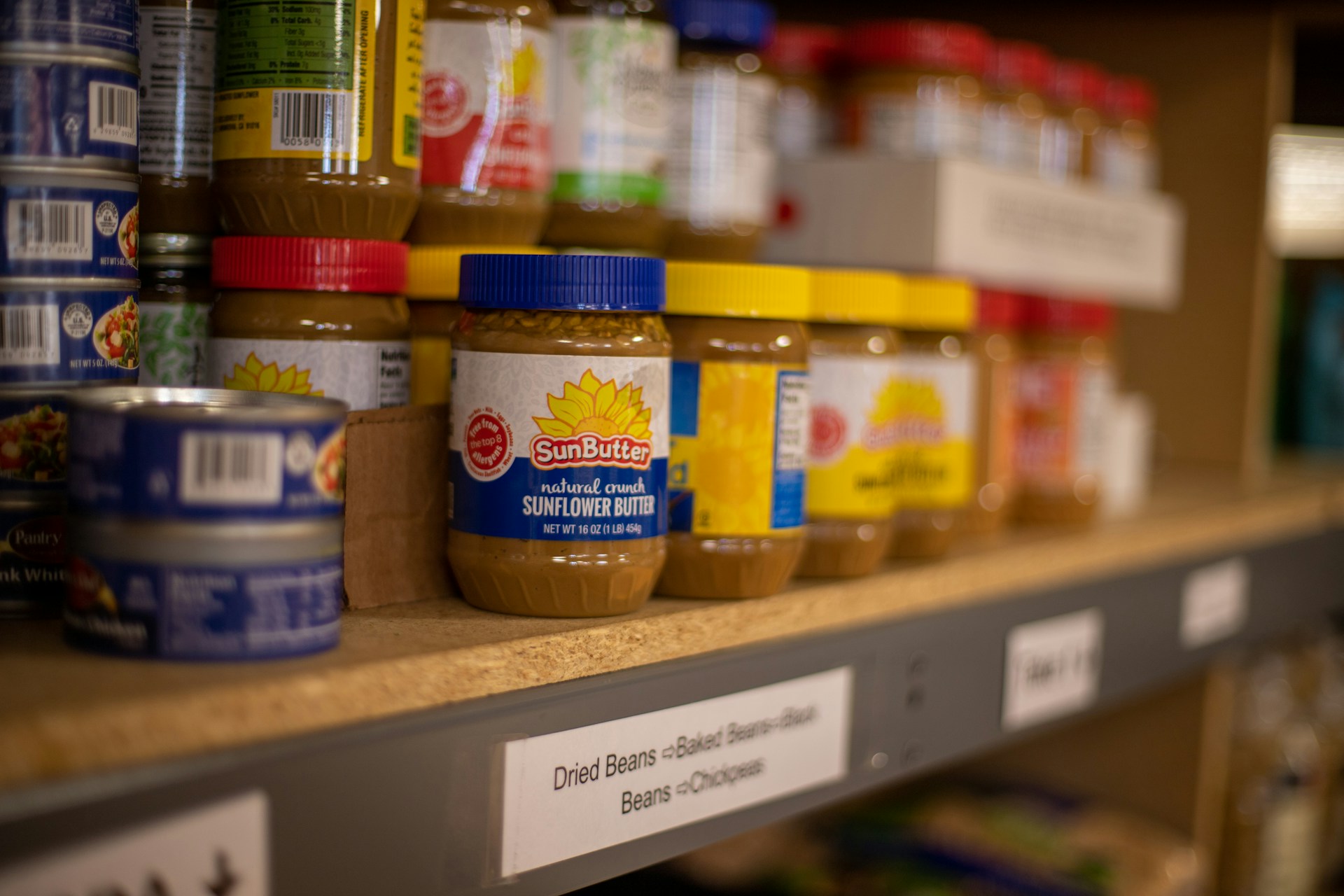The Relationship of Nutritional Knowledge, Mother's Attitude, and Macronutrient Intake with Nutritional Status of Children at SDN Gedangrowo Prambon Sidoarjo
Hubungan Pengetahuan Gizi, Sikap Ibu dan Asupan Zat Gizi Makro dengan Status Gizi Anak di SDN Gedangrowo Prambon Sidoarjo

Downloads
Background: A mother's nutritional knowledge, attitude, and children's macronutrient intake can affect the nutritional status of elementary school-age children.
Objectives: This research analyzes the relationship between a mother's nutritional knowledge, attitude, children's macronutrient intake, and children's nutritional status at SDN Gedangrowo Prambon Sidoarjo.
Methods: This research used a quantitative approach with a cross-sectional research design. It involved 110 students as research participants. The data were collected using multiple instruments. The research used the mother's nutritional knowledge test sheet to see the mother's nutritional knowledge knowledge. While an attitude questionnaire was distributed to investigate mothers' attitudes, the intake of macronutrients was measured using the Semi Quantitative Food Frequency Questionnaire (SQ-FFQ). These data were then analyzed using Logistic Regression Analysis.
Results: The results showed that mothers' nutritional knowledge (p=0.002), attitude (p=0.002), children's energy intake (p=0.001), protein intake (p=0.000) and carbohydrate intake (p=0.008) had a relationship with children's nutritional status. Nevertheless, no relationship was found between fat intake (P=0,067) and children's nutritional status. The nutritional status of children is divided into undernutrition, good nutrition, and overnutrition.
Conclusions: Mother nutritional knowledge, attitude, and children's energy, protein, and carbohydrate intake are related to children's nutritional status. There is no relationship between fat intake and children's nutritional status. Based on multivariate analysis, it is reported that protein intake has a strong relationship with children's nutritional status.
WHO/UNICEF/WorldBank. The UNICEF/WHO/WB Joint Child Malnutrition Estimates (JME) group released new data for 2021. World Health Organization (2021).
Kemenkes RI. Laporan Riskesdas 2018. Badan Penelitian dan Pengembangan Kesehatan (2018).
BKPK. Buku Saku Hasil Survei Status Gizi Indonesia (SSGI) Tahun 2022. Kemenkes RI (2023).
Fitri, Y. Hubungan antara Aktivitas Fisik dengan Status Nutrisi Anak Usia Seolah di SD BOPKI Gondolayu Kota Yogyakarta. (STIKES Jenderal Achmad Yani Yogyakarta, 2017).
Yuhansyah, M. Gambaran Tingkat Pengetahuan Ibu terkait Gizi Pada Anak Balita di Upt Puskesmas Remaja Kota Samarinda. Borneo Noursing J. 1, (2019).
Puspasari, N. & Andriani, M. Hubungan Pengetahuan Ibu terkait Gizi dan Asupan Makan Balita dengan Status Gizi Balita (BB/U) Usia 12-24 Bulan. Amerta Nutr. 1, (2017).
Boro, R. M. & Hasan, T. Pengaruh Karakteristik Keluarga, Pengetahuan Gizi dan Kebiasaan Sarapan Pagi terhadap Status Gizi Siswa SD Negeri Fatukanutu Kecamatan Amabi Oefeto Kabupaten Kupang Provinsi Nusa Tenggara Timur. Kupang J. Food Nutr. Res. 3, (2022).
Nurmaliza, N. & Herlina, S. Hubungan Pengetahuan dan Pendidikan Ibu terhadap Status Gizi Balita. J. Kesmas Asclepius. 1, (2019).
Fadila, R. N., Amareta, D. I. & Febriyatna, A. Hubungan Pengetahuan Dan Perilaku Ibu Terkait Gizi Seimbang Dengan Status Gizi Anak Tk Di Desa Yosowilangun Lor Kabupaten Lumajang. J. Kesehat. 5, (2019).
Indrayani, I., Rusmiadi, L. C. & Kartikasari, A. Hubungan Antara Pengetahuan Dan Sikap Ibu Dengan Status Gizi Pada Balita Di Wilayah Uptd Puskesmas Cidahu Kecamatan Cidahu Kabupaten Kuningan. J. Ilmu Kesehat. Bhakti Husada Heal. Sci. J. 11, (2020).
Aritonang, I. Gizi Ibu dan Anak: Esensinya Bagian Pembangunan Manusia. Yogyakarta: Leutikaprio (2015).
Almatsier, S. Prinsip Ilmu Gizi Dasar. PT Gramedia Pustaka Utama, Jakarta (2016).
Suryani, L., Payung, S. & Pekanbaru, N. Faktor Yang Memengaruhi Status Gizi Balita Di Wilayah Kerja Puskesmas Payung Sekaki. JOMIS (Journal Midwifery Sci. 1, (2017).
Ayuningtyas, G., Hasanah, U. & Yuliawati, T. Hubungan Tingkat Pengetahuan Ibu Dengan Status Gizi Balita. J. Nurs. Res. 1, (2021).
Roring, N. M., Posangi, J. & Manampiring, A. E. Hubungan antara pengetahuan gizi, aktivitas fisik, dan intensitas olahraga dengan status gizi. J. Biomedik:JBM. 12, (2020).
Hardinsyah & Supariasa, I. D. N. Ilmu Gizi Teori & Aplikasi. Buku Kedokteran ECG (2016).
Anzarkusuma, I. S., Mulyani, E. Y., Jus'at, I. & Angkasa, D. Status Gizi Berdasarkan Pola Makan Anak Sekolah Dasar Di Kecamatan Rajeg Tangerang (Nutritional Status Based on Primary School Student'S Dietary Intake in Rajeg District Tangerang City). IJHN (Indonesian J. Hum. Nutr. 1, (2015).
Florence, A. G. Hubungan Pengetahuan Gizi dan Pola Konsumsi Dengan Status Gizi Pada Mahasiswa TPB Sekolah Bisnis dan Manajemen Institut Teknologi Bandung. J. Chem. Inf. Model. (2017).
Yani Lestari, P. et al. Hubungan Pengetahuan Terkait Gizi Terhadap Status Gizi Remaja. J. Surya Med. 8, 65–69 (2022).
Handini, M. C. & Anita, A. Pengaruh Pengetahuan Gizi, Status Sosial Ekonomi, Gaya Hidup Dan Pola Makan Terhadap Status Gizi Anak (Studi Kausal di Pos PAUD Kota Semarang Tahun 2015). JPUD - J. Pendidik. Usia Dini. 10, (2016).
Safitri, S. I., Fauzan, S. & Sukarni. Hubungan Antara Sikap dan Pengetahuan Ibu dengan Status Gizi Berdasarkan BB/U pada Anak Balita di Wilayah Kerja Puskesmas Kota Singkawang. J. Univ. Tanjungpura (2018).
Qamariyah, B. & Nindya, T. S. Hubungan Antara Asupan Energi, Zat Gizi Makro dan Total Energy Expenditure dengan Status Gizi Anak Sekolah Dasar. Amerta Nutr. 2, (2018).
Parinduri, M. S. & Safitri, D. E. Asupan Karbohidrat Dan Protein Berhubungan Terhadap Status Gizi Anak Sekolah Di Syafana Islamic School Primary, Tangerang Selatan Tahun 2017. ARGIPA (Arsip Gizi dan Pangan). 3, (2018).
Zuhriyah, A. Konsumsi energi, protein, aktivitas fisik, pengetahuan gizi dengan status gizi siswa SDN Dukuhsari Kabupaten Sidoarjo. J. Gizi Univ. Negeri Surabaya. 01, (2021).
Diniyyah, S. R. & Nindya, T. S. Asupan Energi, Protein dan Lemak dengan Kejadian Gizi Kurang pada Balita Usia 24-59 Bulan di Desa Suci, Gresik. Amerta Nutr. 1, (2017).
Helmi, R. Faktor-Faktor yang Berhubungan terhadap status Gizi pada Balita di Wilayah Kerja Puskesmas Margoroto Kecamatan Metro Kibang Kabupaten Lampung Timur. J. Kesehat. IV, (2013).
Lestari, P. Hubungan Pengetahuan Gizi, Asupan Makanan dengan Status Gizi Siswi Mts Darul Ulum. Sport Nutr. J. 2, (2020).
Juwita, D. M., Sari, E. N. & Husna. Hubungan Pengetahuan Dan Sikap Ibu Terkait Keluarga Sadar Gizi Dengan Status Gizi Pada Balita Di Wilayah Kerja Puskesmas Padang Laweh Jorong Jati Makmur Kabupaten Dharmasraya Tahun 2022 . J. Kesehat. Tambusai. 3, (2022).
Rakhmawati, N. Z. & Panunggal, B. Hubungan Pengetahuan Dan Sikap Ibu Dengan Perilaku Pemberian Makanan Anak Usia 12-24 Bulan. J. Nutr. Coll. 3, (2014).
Setiyaningrum, S. & Duvita Wahyani, A. Hubungan Pengetahuan Dan Sikap Ibu Keluarga Sadar Gizi Dengan Status Gizi Anak Balita. J. Ilm. Gizi Kesehatan. 1, (2020).
Zabaldi, A., Hayu, R. E. & Mayasari, E. Asupan Energi Terhadap Status Gizi Anak Tk An Namiroh Pusat Pekanbaru. Al-Tamimi Kesmas J. Ilmu Kesehat. Masy. (Journal Public Heal. Sci. 9, (2021).
Wijayanti, N. Fisiologi Manusia dan Metabolisme Zat Gizi. universitas Brawijaya press (2017).
Batubara, F. R. Hubungan Asupan Energi dan Protein Terhadap Status Gizi Siswa 10-12 Tahun di Sekolah Dasar Dinamika Indonesia, Kecamatan Bantar Gebang, Bekasi. J. Ilm. Widya. 6, (2019).
Nurmalasari, Y., Sjariani, T. & Sanjaya, P. I. Hubungan Tingkat Kecukupan Protein Dengan Kejadian Stunting Pada Balita Usia 6-59 Bulan Di Desa Mataram Ilir Kec. Seputih Surabaya Kabupaten Lampung Tengah Tahun 2019. J. Ilmu Kedokt. dan Kesehat. 6, (2019).
Istiany, A. & Ruslianti. Gizi Terapan. (Remaja Rosdakarya, 2013).
Fadillah, A., Widajanti, L. & Nugraheni, S. A. Hubungan Asupan Gizi dan Aktivitas Fisik dengan Status Gizi (Skor z IMT/U) Anak Usia 7-12 Tahun Penyandang Disabilitas Intelektual di Kota Semarang. MEDIA Kesehat. Masy. Indones. 19, (2020).
Anggraeni, L. D., Toby, Y. R. & Rasmada, S. Analisis Asupan Zat Gizi Terhadap Status Gizi Balita. Faletehan Heal. J. 8, (2021).
Copyright (c) 2023 Amerta Nutrition

This work is licensed under a Creative Commons Attribution-ShareAlike 4.0 International License.
AMERTA NUTR by Unair is licensed under a Creative Commons Attribution-ShareAlike 4.0 International License.
1. The journal allows the author to hold the copyright of the article without restrictions.
2. The journal allows the author(s) to retain publishing rights without restrictions
3. The legal formal aspect of journal publication accessibility refers to Creative Commons Attribution Share-Alike (CC BY-SA).
4. The Creative Commons Attribution Share-Alike (CC BY-SA) license allows re-distribution and re-use of a licensed work on the conditions that the creator is appropriately credited and that any derivative work is made available under "the same, similar or a compatible license”. Other than the conditions mentioned above, the editorial board is not responsible for copyright violation.












































